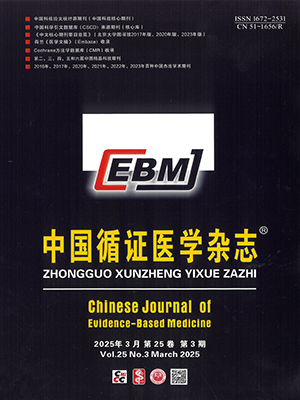Objective To assess the efficacy and safety of acupuncture versus western medicine in the treatment of depression neurosis.
Methods Randomized controlled trials (RCTs) involving acupuncture versus western medicine in the treatment of depression neurosis were identified from CBM (1978 to 2009),VIP (1989 to 2009),WANFANG Database (1998 to 2009), CNKI (1979 to 2009), PubMed (1966 to 2009), EMbase (1980 to 2009), and The Cochrane Library (Issue 4,2008). We also hand searched relevant journals from Tianjin University of Traditional Chinese Medicine. Data were extracted and evaluated by two reviewers independently with a specially designed extraction form. The Cochrane Collaboration’s RevMan 5.0.2 software was used for data analyses.
Results A total of 9 trials involving 903 patients were included. Meta-analyses showed that the total effective rate in the acupuncture group was similar when compared with Dailixin (RR= 1.01, 95%CI 0.82 to 1.23) on 20 d, fluoxetine (RR= 1.06, 95%CI 0.82 to 1.37) at week 8, but showing difference between acupuncture and fluoxetine (RR= 1.15, 95CI 1.07 to 1.22) at week 12. As for the HAMD score, no significant difference was noted between acupuncture and Dailixin (WMD= 0.45, 95%CI – 2.47 to 3.37) at 20 d, or amitriptyline at week 6, or fluoxetine on 30 d, and weeks 4, 8, 12; there was a difference between acupuncture and amitriptyline observed at week 1 (WMD= – 2.67, 95%CI – 4.38 to – 0.96) and week 2 (WMD= – 2.18, 95%CI – 3.28 to – 1.08). In terms of the SDS scores, significant difference was found between acupuncture and fluoxetine (WMD= – 4.26, 95%CI – 6.67 to – 1.85) at week 6, but no difference at week 4 and 12. Four trials reported adverse events. One trial found that no adverse events existed in acupuncture according with TESS score, contrasting with thirst, constipation, vision vague, shimmy, fast heart rate, and some change in liver function and cardiogram in amitriptyline group.Two trials reported very low score in acupuncture showing difference when compared with the drugs. And one trial described that four people had stomach and intestinal tract disorders. While no adverse reactions happened in the acupuncture group.
Conclusion Acupuncture is not inferior to western medicine, and it is worth noting that acupuncture is associated with few adverse reactions. Further large-scale trials are required to define the role of acupuncture in the treatment of depression neurosis.
Citation: XIONG Jun,DU Yuanhao,LIU Jialin,LIN Xiaomiao,SUN Pan,XIAO Li,GAO Xiang,CHEN Yuanwu. Acupuncture versus Western Medicine for Depression Neurosis: A Systematic Review. Chinese Journal of Evidence-Based Medicine, 2009, 09(9): 969-975. doi: 10.7507/1672-2531.20090172 Copy
Copyright © the editorial department of Chinese Journal of Evidence-Based Medicine of West China Medical Publisher. All rights reserved




